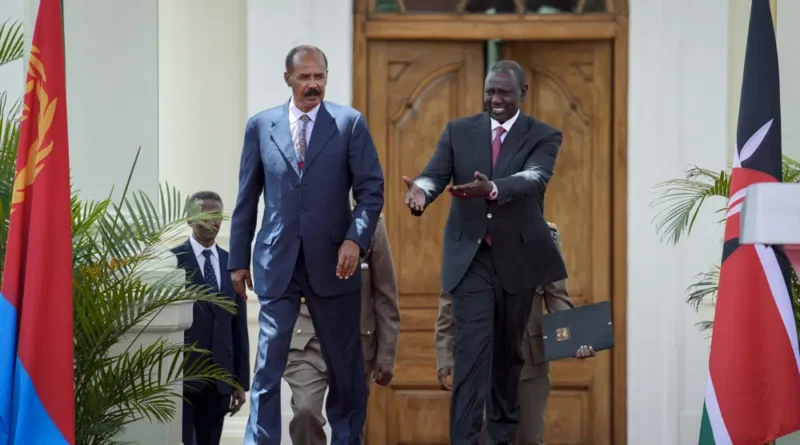Eritrean leader dismisses as ‘fantasy’ alleged Tigray abuse
NAIROBI, Kenya — Eritrea’s president in rare public comments has dismissed as “a fantasy” allegations that his country’s forces carried out rape, looting and other abuses in the war in neighboring Ethiopia’s Tigray region.
President Isaias Afwerki, the only leader Eritrea has known in its 30 years since independence, spoke to journalists Thursday during a visit to Kenya during which the two countries announced the expected return of the long-reclusive Eritrea to a regional organization addressing security and drought.
Since the start of the two-year Tigray conflict that killed an estimated half-million civilians and ended with a peace agreement in November, the presence of Eritrean forces allied with Ethiopian ones was a major issue.
For months Ethiopia’s government denied that Eritrean forces were even in Tigray. But human rights groups and United Nations experts alleged they were responsible for many abuses against ethnic Tigrayans, such as gang rape
Eritrea is not a party to the peace deal, and some of its forces have remained inside Tigray, though the United States recently said they have withdrawn to the border area.
The Eritrean president, who rarely speaks to independent media, said his country has “no intention of interfering” in the peace process in Ethiopia and has “no agenda” there.
“You talk about withdrawal, non-withdrawal, we say this is nonsense,” the 77-year-old leader said. “Don’t provoke us” to cause misunderstandings, he added: “Let’s assume that the peace process in Ethiopia is going without obstacles.”
Growing visibly irritated with questions, Isaias also accused those alleging human rights abuses of “fabricating lies and misinformation” with an aim of disrupting the peace process. “You’re wasting your time,” he said.
“Everybody talking about human rights, violations here and there, rape, looting, this is a fantasy,” the Eritrean leader said.
Kenyan President William Ruto, for his part, asserted there has been “huge progress, tremendous progress” in Ethiopia’s peace process. Former Kenyan President Uhuru Kenyatta was a facilitator of the peace talks.
The conflict erupted in Tigray a year after Ethiopian Prime Minister Abiy Ahmed received the Nobel Peace Prize for making peace with longtime rival Eritrea. The Ethiopian and Eritrean governments saw the Tigray regional leaders, who had long dominated Ethiopia’s government before Abiy took office, as a common threat.
The conflict killed an estimated half-million civilians in Tigray alone, according to researchers with Ghent University in Belgium. Eritrea’s leader on Thursday didn’t respond to questions about the number of Eritreans killed.
While the Kenyan and Eritrean leaders’ statement spoke of Eritrea considering a return to the Horn of Africa regional body the Intergovernmental Authority on Development as a member, Eritrea’s leader in his remarks said, “I readily say there is no question about that,” to applause.
Eritrea and Kenya also are abolishing visa requirements for each other’s citizens effective immediately, and Kenya will open a diplomatic mission in Eritrea’s capital.
Kenya’s president said he is looking forward to working with Eritrea’s government on issues related to Ethiopia and other regional neighbors Sudan and South Sudan.

